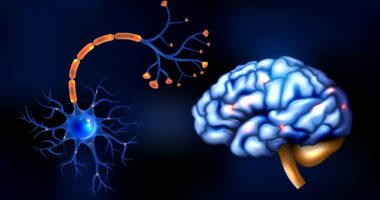Postpartum depression, also called perinatal depression, is a mood disorder that can affect women after giving birth. It is characterized by feelings of sadness, anxiety, and exhaustion that can interfere with daily life and bonding with the baby. Recognizing symptoms, seeking help, and considering therapy or medication if necessary is important. This is common; with proper treatment, many women can recover and enjoy motherhood.
You are not alone; today, we are putting an end to the lukewarm ignorance of mothers and the general public about the stigma, unchecked guilt, shame, and unanticipated pain of motherhood.
Depression is a mental health disorder characterized by persistent feelings of sadness, hopelessness, and disinterest in activities. It can affect how you think, feel, and perform daily activities. Depression can vary in severity and duration and often requires treatment such as therapy, medication, or a combination of both.

Antenatal depression can manifest itself in several ways, including:
1. Thoughts of harming yourself or the baby
2. Changes in appetite or weight
3. Withdrawal from friends, family, or social activities.
4. Feelings of hopelessness or worthlessness
5. Difficulty sleeping or sleeping too much
6. Difficulty concentrating or making decisions
7. Fatigue or lack of energy
8. Loss of interest or pleasure in activities.
9. Persistent sadness or bad mood
10. Excessive anxiety or worry, especially regarding pregnancy or impending motherhood.

These symptoms can vary in intensity and may come and go. Pregnant people experiencing these symptoms must seek help from healthcare professionals.
Treatment for perinatal depression usually involves a combination of therapies and, in some cases, medications. Cognitive behavioural therapy (CBT) is commonly used to help people develop coping strategies and combat negative thought patterns. Antidepressants may also be prescribed in severe cases, but their use during pregnancy and breastfeeding should be carefully discussed with a healthcare professional to assess the potential risks and benefits. Support groups and lifestyle changes, such as exercising regularly and getting enough sleep, can also be beneficial. People suffering from perinatal depression must seek help from a healthcare professional for proper assessment and treatment planning.
Perinatal depression can present unique challenges for parents, including feelings of guilt, shame, and inadequacy, difficulty bonding with the baby, strain on relationships, and difficulty seeking help due to stigma or fear of judgment. Additionally, the physical demands of pregnancy and caring for a newborn can exacerbate symptoms, making treatment even more difficult. These people need support and understanding from healthcare providers, loved ones, and community resources.

Supporting people with perinatal depression requires a multifaceted approach involving health professionals, mental health specialists, and support networks. Here are some strategies:
1. Screening and Diagnosis: Healthcare providers should routinely screen pregnant and postpartum people for depression using standardized assessment tools.
2. Therapy: Psychotherapy, such as cognitive behavioural therapy (CBT) or interpersonal therapy (IPT), can be effective in treating perinatal depression. Therapy sessions can provide a safe space for people to explore their feelings and develop coping strategies.
3. Medications: In some cases, antidepressants may be necessary. Healthcare providers can discuss medications’ possible risks and benefits during pregnancy and breastfeeding.
4. Support groups: Encourage participation in specific support groups for perinatal depression. Connecting with others going through similar experiences can provide validation and reduce feelings of isolation.
5. Education and information: Provide education about perinatal depression to the individual and their support network. Understanding the illness can help loved ones offer more effective support.
6. Practical support: Offer practical help such as childcare, housework, and meal preparation to reduce stress and allow the person to focus on self-care.
7. Promotion of self-care: Encourage the individual to prioritize self-care activities such as exercise, adequate sleep, healthy eating, and relaxation techniques.
8. Partner and family involvement: Involve partners and family members in the treatment process, helping them understand how they can provide support and encouragement.
9. Follow-up and monitoring: Periodically monitor the person to monitor their progress and adjust treatment if necessary. It is essential to ensure continuous support throughout the perinatal period.
10. Crisis intervention: Have a plan to manage crises, including access to emergency mental health services if necessary.
11. Combat stigma: Work to reduce the stigma surrounding perinatal depression by promoting open discussions and raising community awareness.
By implementing a comprehensive approach that addresses the medical, psychological, and social aspects of perinatal depression, we can better support people facing this illness.
Together, we can heal.
You are the best mother you can be; giving birth to a child is the greatest gift you can receive.









